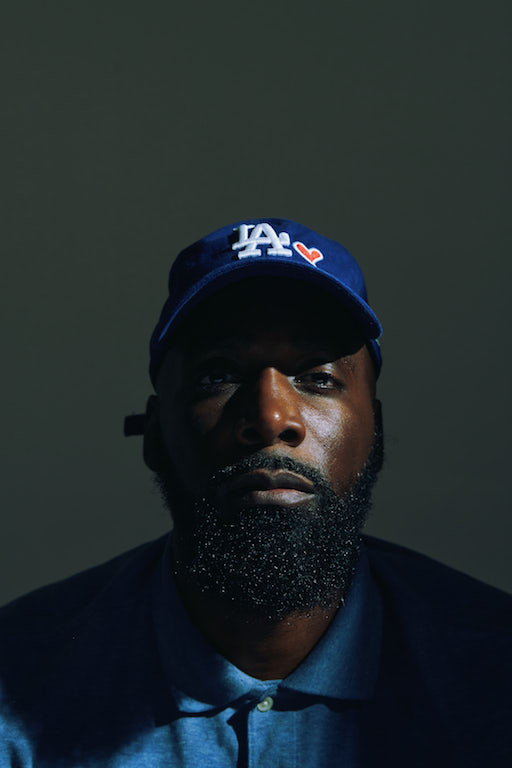
Victor Gabriel, writer/director of AFI Fest nominated short film, Hallelujah. Photo: Sheldon Botler
HOLLYWOOD, CA (LA ELEMENTS) 11/10/2022 – “There comes a point in every black man’s life when he must choose whether to move forward or to fall back and succumb to his memory.” “Memories that hold everything he’s been avoiding.”
Moving forward for brothers Chetty (Richard Nevels) and Paper(Bruce Lemon) means being more than uncles to the titular character of Hallelujah (Stephen Thomas) and his little sister Lila (Mariah Pharms) in the aftermath of a life-changing tragedy.
This short (13 minutes 53 seconds) film by Victor Gabriel, begins optimistically enough. We see opening shots of a beautiful sunny California day and the presence of the whimsical landmark, Dale’s Donuts, affirms that the locale is Compton.
Hallelujah is narrated by a loving if argumentative couple who reveal that the story they are about to tell isn’t really about Hallelujah, “a strange little boy who on that day is stranger than usual.
”How strange? On “that day”, Hallelujah is pacing in the back yard, wearing steam punk spectacles and quoting a passage from “Black Boy” by Richard Wright. Chetty and Paper are so engrossed in arguing over the possibility of having to take care of Hallelujah and Lila, that they don’t notice when their nephew becomes so worked up that he actually tries to kill himself. And because it’s Hallelujah, even that act comes across as comical and bizarre. All of this spells big trouble for Paper as he fears that being saddled with a weird little boy, especially one named Hallelujah will scare off the ladies.But as the narrators reminds us, the story isn’t about Hallelujah. It’s ultimately a story about what happens when life’s journey takes a sharp and painful detour. Will loved ones rise to the challenge and put their own hurt aside to better protect those who clearly can’t fend for themselves? In this case that would be Chetty and Paper. Nevels gives Chetty the right combination of sensitivity and intelligence. He’s not going to jump into an unknown situation, but one gets the sense that on some level, he already knows what must be done. Lemon gives a realistic portrayal of a man rudely awakened from his comfort zone. His Paper is someone who’s busy yet doesn’t have a job. Is worried about his image with the ladies yet hasn’t really ever had a serious girlfriend. The fact that the fate of a little boy and girl rests partially in his hands appears to be kind of a cosmic joke.
But then again, despite the tragedy that sets the action in motion, there are moments of comedy in Gabriel’s film. Fittingly billed as a “traumedy,” by the filmmaker, the tragedy might be deep but there are moments of comedy too. And ultimately, we end up caring enough about the characters to wonder where life will lead them next.
The AFI Fest nominated film Hallelujah screened on November 5 as part of the Live Action Short Film Program.
We reached out to Victor Gabriel, the writer/director of Hallelujah to discuss his path to becoming a filmmaker, the elements of truamedy and more. This interview has been edited for length and clarity.
On his early beginnings:
“Well, I was born in LA, moved around a lot. My biological mother is not from this country. She’s a Ugandan immigrant. Moved around multiple places, LA San Diego, came to Compton, which is actually where I made the short film in Compton in my back yard in my home.”
“I grew up poor, in a lot of poverty. My home environment was fairly abusive, but we made it the best we could. I have sort of been supported by many people, many black women. Like I said. my biological mother Juliet did her best. There were other people who came along to help me out. My other mother, Mama Debbie who I live with in Compton now, where I made this short film, in the east side.”
On his past work as a therapist:
“I was doing a bunch of other stuff but then I became an American Family Therapist. I was doing trauma work in Compton, Watts and South Central. So, I was going to people’s houses, I was meeting people at school from the street, I was doing work with survivors of trauma. I worked in Watts, Jordan Downs, Knickersons, just trying to help my people. I got a Master’s Degree (Clinical Psychology) and I was helping my people out, just doing therapy.’
On the role that AFI played in guiding him as a filmmaker:
‘’I always created. At one point I was trying to do music and that wasn’t really popping, so I stopped doing music and from there I ended up going to AFI. I went to film school and got a second degree in screenwriting. From there is where I learned filmmaking. I wrote a short script. Got in. And then I just sat and soaked up all the information and I audited all the classes and from there, I decided what type of stories I wanted to tell.”
On the influence of his past and past profession on his films and the surprising comedy that can be found in a tragedy:
‘I just really learned that a lot of the things that I’ve been through personally, I think, generationally as well as just communally, in a communal form, there’s been a lot of trauma and things that I’ve seen. But I have a lot of hope, resilience and innocence in the things that I’ve seen and done because I’ve worked with a lot of children. In the trauma I see a lot of hope. I see a lot of funny things. Funny instances, humor.’
“Some of the funniest things I’ve ever seen have been in therapy sessions with drug addicts, sex workers, people who have been abused and going through heavy trauma. They tell me their stories and it ends up being slightly funny. Sometimes of course it’s very dark. It’s panic attacks and crying and a lot of times too, it’s said in a hilarious way. That sort of formed my way of how I came up with Hallelujah, which was combining the trauma and the comedic aspects I see in my neighborhood and I just see in general. Just trying to figure out what’s a great way to tell that story ‘cause lots of people can tell hood stories. I’m not really going to tell the “super hood” stories, but I can tell the stories my way. I think that the stories I tell my way involves the things that I see in the community but also involves other things. Other elements which may be like creativity, intelligence, humor and not just darkness, darkness, darkness and violence, violence, violence. I want to have the violence and the darkness and also have hope and a sense of comedy.”
On whether or not the art of Hallelujah imitates his life:
“It’s a combo of my life because I’ve lost people to gun violence. I lost my little bro. He got shot. So, it’s that, it’s the poverty I’ve experience, it’s also stories I’ve seen in the kids I’ve worked with. On some level the characters are all a composite of me.”
“Hallelujah reminds me of myself. Even his skin tone is very dark and he’s odd and that’s me. Right? And there’s also a bit of me that’s the protector, so that’s like the uncles, because we’re protectors but we’re also confused. We’re trying to figure it all out and we’re not necessarily given the tools to work with. But we’re just expected to show up. So, we’ve just got to do it and as black men, we don’t get a lot of leeway when we make mistakes. When we make mistakes, the world is very harsh on us and so that can be very hard in figuring out what to do.”
On coming up with the name Hallelujah for the title character:
“Part of it’s trying to figure out a tone and a name. Hallelujah is an odd name to give to a child, right? It’s a thing here in church, hallelujah, ‘Give Him praise, honor God.’ I come from the church. It’s me thinking this would be a cool name to give to a kid. And also, it creates a tone in the film subconsciously when people see the name Halleluja. Like, ‘the kid’s name is Hallelujah??’ It creates a tone, but then on top of it, it feels like apropos. So there’s that but there’s also the subtextual, spiritual thing of it.”
“For me it’s like, trying to figure out the hope …which is praising God in the midst of harsh situations even though it’s crazy. So it’s these elements that are intertwined. I was looking for a name to give a kid that was a bit odd and that matched the tone and Halleluja fit because I guess it communicates some of my own spiritual beliefs and upbringing through it. But it’s not a Christian film. You feel me? There are all kinds of wildness but it’s a way for me to communicate some of my beliefs subtextually. Also, what I feel like is happening in the black community is we got through a lot of stuff through spiritual practices and so there’s also that homage, that understanding that ‘slaves got through this by singing spirituals in the fields.’ So there’s sort of honoring to that and also just, I really love gospel music. I listen to a lot of gospel music and so it’s always in my head musically.’
On the elements that drive Hallelujah:
“Part of the movie is just ‘accept,’ but it’s also multiple things. I never struggle with themes. I’m heavily thematic, it’s just sometimes I have multiple themes happening. But one of those big ones is in fact acceptance. It’s grieving and acceptance. In order to find the family they have right here, they have to accept that the family they had is gone. And that my friend that is hard. That is hard. That is hard for anybody. Who can do that? Like it’s almost an impossibility. That’s why suicide happens. That’s why Hallelujah is in despair. It’s almost easier to give into the despair than to give into the possibility of a life that may be even more powerful than the one you had. I know I struggle with that. So it’s hard to accept the loss. But I think I’m telling the characters and maybe telling us, ‘you’ve got to do something.’ Or else you’re going to be in despair man. You’re going to kill yourself or something. Maybe not physically but some sort of death is going to happen. So yes, you have to move forward, some way some how.”
On the casting process for Hallelujah:
“I’ll go with Stephen Thomas first. At AFI, there are these things we did, basic projects called cycle films, which are like short films we make that are homework assignments. We have to go through the whole casting process. I was working with this director, my brother, his name’s Jorge Campanena and he directs, and I help him write his stuff, typically. I wrote something, he was directing it and we needed a little boy, and we found him through the AFI casting process and that was like three years ago.” “Well that came back around. Initially we had someone else in mind who was a bit older and taller. He was a very good actor by the way, but it didn’t work out with him. For whatever reason. I think he had a couple auditions, something happened. And we were on deadline, so I was like, ‘what about this one kid I saw a long time ago.’ So I called up his dad and said, ‘do you remember me from blah blah blah’ and he said, ‘of course’. So, I brought him on, and he was perfect. I mean he naturally does everything like I want Hallelujah to do. And he doesn’t have enough acting experience. He has minimal. He has minimal acting experience. So, I didn’t over direct him. I said get your lines down and then just say them. He naturally is a bit peculiar to be honest with you. And it’s beautiful! There’s a beauty in his innocence. He is naturally so innocent and so child-like and so he has this spirit about him which is so …he called me Mr. Vic. ‘Oh Mr. Vic thank you so much for having me be part of your film.’ He lost his mom, like years ago, and his dad has been raising him as a single black father. His dad is a bastion of what it means to be a black male father figure with no help, no excuses just getting it done. Like ‘that’s my son and I’m taking care of him and we’re going to figure it out’ and that’s what he does for his son.
The rest of the casting was done via Casting Networks. Richie, who was in Insecure, I got through my AD, who worked with him before. Bruce, got him through my producer who worked with him before. And then Damon and Melina, that was just more of a typical casting audition process.
On what he wants the audience to understand after watching his film:
“One of the things I would say is that simply, it’s going to be ok. Things are going to work out. You’ll wake up one day be like, ‘man, it turned out alright in the end.’
Hallelujah
Writer/Director Victor Gabriel
Hallelujah Stephan Thomas
Chetty Richard Nevels
Paper Bruce Lemon
Leroy Damon Rutle
Sheray Maelina Gibson
Executive Producer Spike Lee
Follow LA ELEMENTS on Instagram and Twitter. Like us on Facebook.

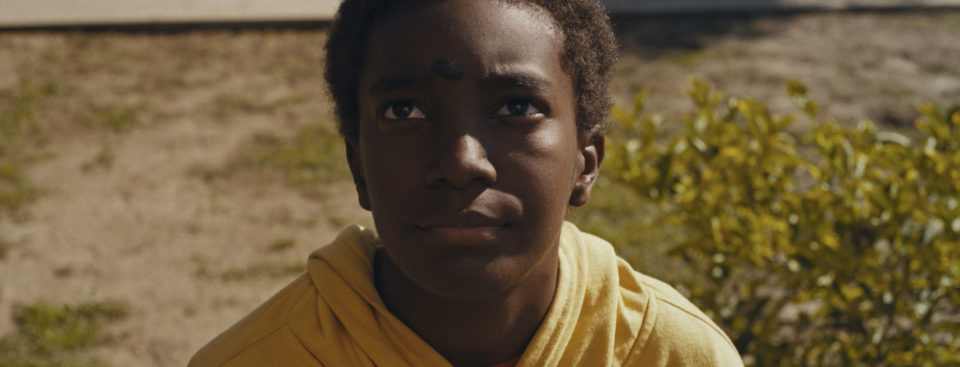
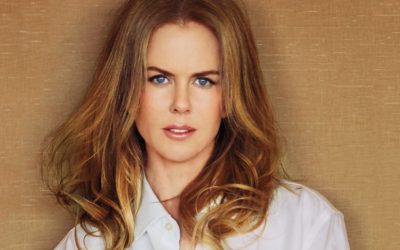
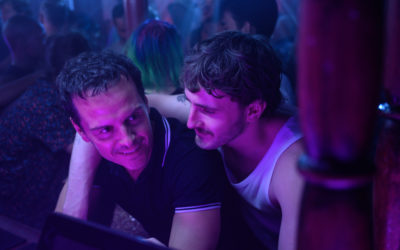
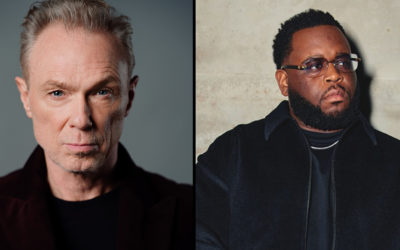
No Comments